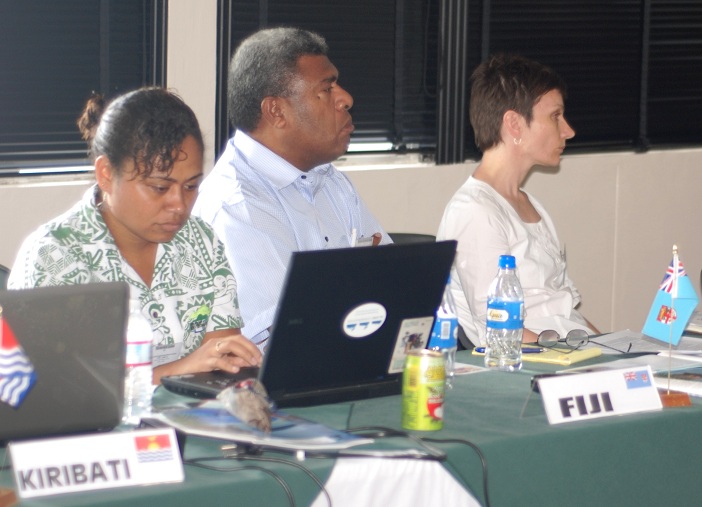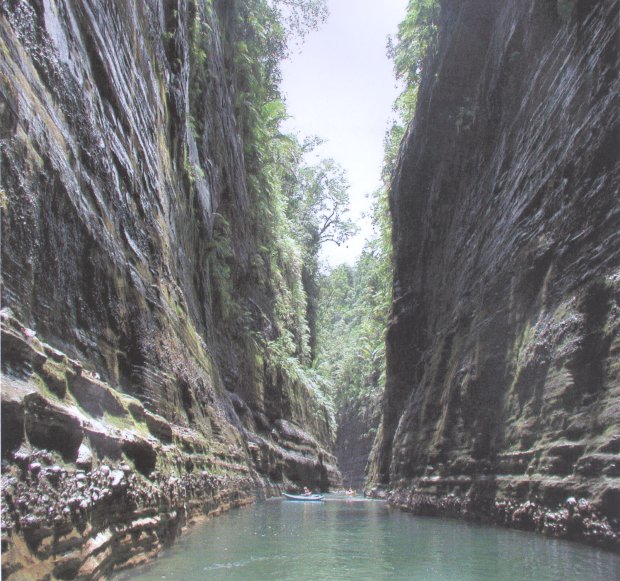
27 March 2012, Palau - It's an unattractive sight in many parts of the Pacific; mangroves filled with rubbish such as used nappies, empty rusted cans, plastic bags. In the Pacific, mangroves and coral reefs are the two main wetlands types. Our region is home to 3% of the world's mangroves and about 25% of the world's coral reefs.
 While waste dumped in our wetlands may be an issue for some in our region, it is also a common problem around the world.
While waste dumped in our wetlands may be an issue for some in our region, it is also a common problem around the world.
"There has been a tendency for us to lose our recognition of how much we have depended on wetlands over centuries, we have turned our backs on them and treated them more as wastelands than wetlands," said Prof. Nick Davidson the Deputy Secretary General of the Ramsar Convention Secretariat.
"People have seen them as places of no value, smelly, muddy and the fact they don't look as pretty as other parts of the planets' systems, we have a disrespect for the systems and allow them to be degraded leading to poor water quality, pollution and loss of services from wetlands."
The value of our wetlands is priceless. They provide benefits through fisheries production, they are a habitat for breeding wildlife, help control floods, provide stable shorelines, filtrate water and also provide recreational opportunities. The mantra – "wetlands are our livelihoods" is still to be fully understood by many.
Ecotourism is one of the fastest growing segments of the tourism industry, both globally and in the Pacific region. Important wetland areas are potential prime tourism destinations for our Pacific countries, both now and in the future. Nature based tourism initiatives in and around wetlands can bring many benefits at both the national and village level.
"Many wetlands in our Pacific islands, including our precious Ramsar sites, are severely impacted by poorly managed rubbish and pollution," said Mr. David Sheppard, Director-General of the Secretariat of the Pacific Regional Environment Programme (SPREP).
"The Clean Pacific campaign aims to galvanise action at all levels, from the grass roots to the highest political level to improve management of waste and pollution in our region. This campaign will make a major contribution to healthy wetlands and to a clean environment."
 (L-R) Ms. Tavenisa Luisa of the Fiji Environment Department and Mr. Saverio Baleikanacea, Deputy Permanent Secretary - Ministry of Local Government, Urban Development, Housing and Environment
(L-R) Ms. Tavenisa Luisa of the Fiji Environment Department and Mr. Saverio Baleikanacea, Deputy Permanent Secretary - Ministry of Local Government, Urban Development, Housing and Environment
Using wetlands as sites for dumping wastes is an unwise use of wetlands.
Mangroves are hugely important for fisheries. They are helpful for catching fish in mangroves, but many of the commercial fisheries depend on deep sea fish that breed in the mangroves. When we destroy our mangroves through unwise use, we also destroy our fisheries and our livelihood.
In Fiji the Litter decree 2010 has been passed, it is hoped this will deter people from dumping rubbish in wetlands, especially in urban areas where this is a challenge.
"Not only do we have urban dwellers using wetlands as waste sites, there is also the problem of when people throw rubbish at sea and this then floats towards shore and is tangled amongst the mangroves," said Tavenisa Luisa of the Fiji Environment Department. She is representing Fiji at the Oceania Regional Wetlands meeting in Palau this week.
Fiji has conducted numerous awareness campaigns to change behavior and encourage people to dispose of 
"We have been fortunate that we have received no complaints about rubbish in our Wetland of international importance, the Upper Navua Conservation Area," said Luisa.
Pictured: Upper Navua Conservation Area (Fiji)
© A. Jenkins
"This is managed by Rivers Fiji Ltd and the tourists that visit this ecotourism-focused site act responsibly; they take their rubbish back with them and dispose of it properly. We are really pleased with this."
For more information on the Clean Pacific campaign please email Ms. Esther Richards, SPREP's Solid Waste Officer at estherr@sprep.org
Notes:
The 5th Oceania Regional Preparatory Meeting for the 11th Conference of the Contracting Parties to the Convention on Wetlands, hosted in Palau is from 26 to 30 March. The meeting is attended by Australia, Fiji, Kiribati, Marshall Islands, New Caledonia, New Zealand, Palau, Papua New Guinea, Samoa, Tonga, and Vanuatu.
Partners that are attending the meeting are from Japan International Cooperation Agency (JICA) Palau Office, IUCN Oceania Regional Office, Palau Conservation Society, Birdlife International and the Micronesia Challenge Regional Office, among others.
The 5th Oceania Regional Meeting for Ramsar COP11 in Palau is funded by the Governments of Australia and France, with additional support from the UNEP and EU funded Multi-lateral Environment Capacity building project.